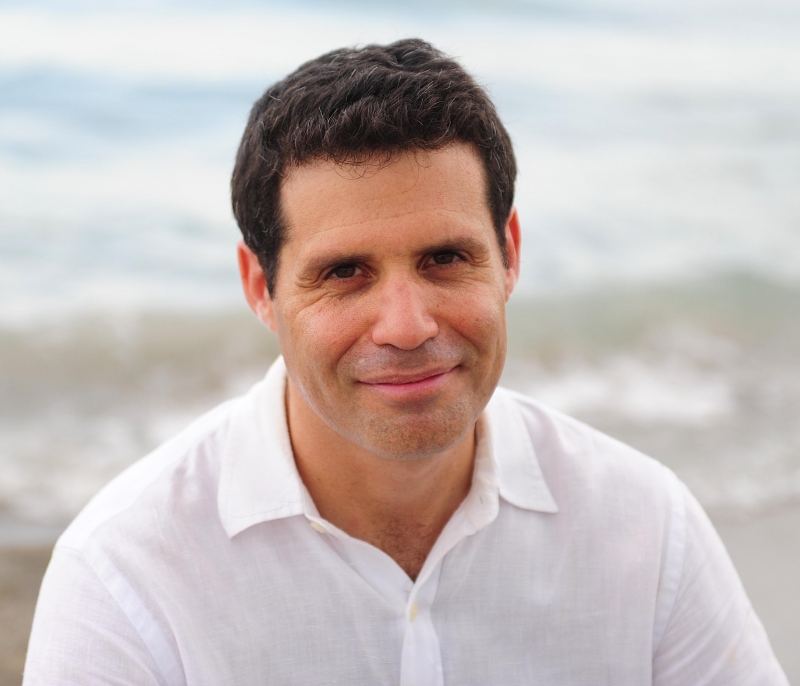Transactive Memory & the Genius of Yizkor
Transactive Memory & the Genius of Yizkor

As we started planning the High Holy Days many months ago, I was reminded of the late Harvard psychologist Daniel Wegner’s theory of transactive memory. He explains that:
People in close relationships know many things about each other’s memories. One partner may not know where to find candles around the house, for instance, but may still be able to find them in a blackout by asking the other partner where the candles are. Each partner can enjoy the benefits of the pair’s memory by assuming responsibility for remembering just those items that fall clearly to him or to her and then by attending to the categories of knowledge encoded by the partner so that items within those categories can be retrieved from the partner when they are needed. Such knowledge of one another’s memory areas takes time and practice to develop, but the result is that close couples have an implicit structure for carrying out the pair’s memory tasks. With this structure in place, couples in close relationships have a transactive memory that is greater than either
of their individual memories.
Here he talks about couples, but the same idea is applicable to families and people who work together for some time. Without ever verbally acknowledging it, different people have a unique knowledge of how to perform certain tasks and the rest of the team rely on these memories. I can hear Mark Slifkin’s voice in my head telling me “that’s why you need to have good written procedures”. He is right, of course, and we have them, but…every year I’m amazed when Debbie Baseman opens the High Holy Days binder that contains a detailed timeline and specific tasks for each one of us to perform by a certain deadline. But there are always things that even the best written document cannot replace the transactive memory of (like, how to find this binder without Debbie).
When we are in a long relationship, everyone becomes specialized in different functions. We use each other’s memories as our own. I realized that as our children grew older, they took over larger parts of our family’s virtual shared hard drive. It started with them being the only ones who possess the knowledge of operating the TV remote control and gradually spread to cell phones and other electronic gadgets. I’m the only one who knows how to decalcify the coffee machine and, unsurprisingly, Gali knows the rest.
When a person dies, I often hear the bereaved spouse says, “something within me died with her/him”. I used to understand it figuratively, but in light of Wegner’s theory, I understand how the loss of our loved one is at the same time, literally, a loss of a part of us. The knowledge that we “stored” in their mind is lost to us. The person we loved was part of our external memory system; their experiences were our experiences and ours were theirs. Some of these things are mundane, but some are crucial and touch on the core of who we are. They were the only ones who knew certain things about us. It is this loss of our “self” in losing a loved one that makes us “no longer, literally, wholly ourselves”.
But at the same time, we must remember that the memories that our loved ones stored within us are still there even after they are gone. The genius of Yizkor is the setting it creates to call on these memories, to bring to the surface the knowledge that only we have of them.
May we all have a wonderful year with many meaningful memories.
Wed, November 5 2025
14 Cheshvan 5786
Upcoming Events
-
Wednesday ,
NovNovember 5 , 2025Mah Jongg
Wednesday, Nov 5th 1:00p to 4:00p
-
Wednesday ,
NovNovember 5 , 2025SH Board Meeting
Wednesday, Nov 5th 4:00p to 5:00p
-
Wednesday ,
NovNovember 5 , 2025Adult Education: Great Jewish Debates
Wednesday, Nov 5th 6:30p to 8:00p
-
Thursday ,
NovNovember 6 , 2025Canasta
Thursday, Nov 6th 1:00p to 3:30p
-
Friday ,
NovNovember 7 , 2025Kids Shabbat
Friday, Nov 7th 5:30p to 6:30p
-
Friday ,
NovNovember 7 , 2025Shabbat Service
Friday, Nov 7th 6:30p to 7:30p
-
Saturday ,
NovNovember 8 , 2025Men's Club Weekly Walk & Brunch
Shabbat, Nov 8th 9:30a to 11:00a
-
Sunday ,
NovNovember 9 , 2025Veteran's Day Breakfast
Sunday, Nov 9th 9:30a to 11:30a
-
Sunday ,
NovNovember 9 , 2025Cochavim (3rd-5th) Youth Group: Menorah Workshop
Sunday, Nov 9th 12:00p to 1:30p
-
Monday ,
NovNovember 10 , 2025Book Club
Monday, Nov 10th 10:30a to 11:30a
Update this content.
Come Together
Something meaningful and dynamic is happening here at Temple Beth Am. It springs from the warmth of our welcome and the energy of our actions. We call it: Kulanu - All of Us Together.
Join UsUpcoming Events
-
Wednesday ,
NovNovember 5 , 2025Mah Jongg
Wednesday, Nov 5th 1:00p to 4:00p
-
Wednesday ,
NovNovember 5 , 2025SH Board Meeting
Wednesday, Nov 5th 4:00p to 5:00p
-
Wednesday ,
NovNovember 5 , 2025Adult Education: Great Jewish Debates
Wednesday, Nov 5th 6:30p to 8:00p
-
Thursday ,
NovNovember 6 , 2025Canasta
Thursday, Nov 6th 1:00p to 3:30p
-
Friday ,
NovNovember 7 , 2025Kids Shabbat
Friday, Nov 7th 5:30p to 6:30p
Privacy Settings | Privacy Policy | Member Terms
©2025 All rights reserved. Find out more about ShulCloud

